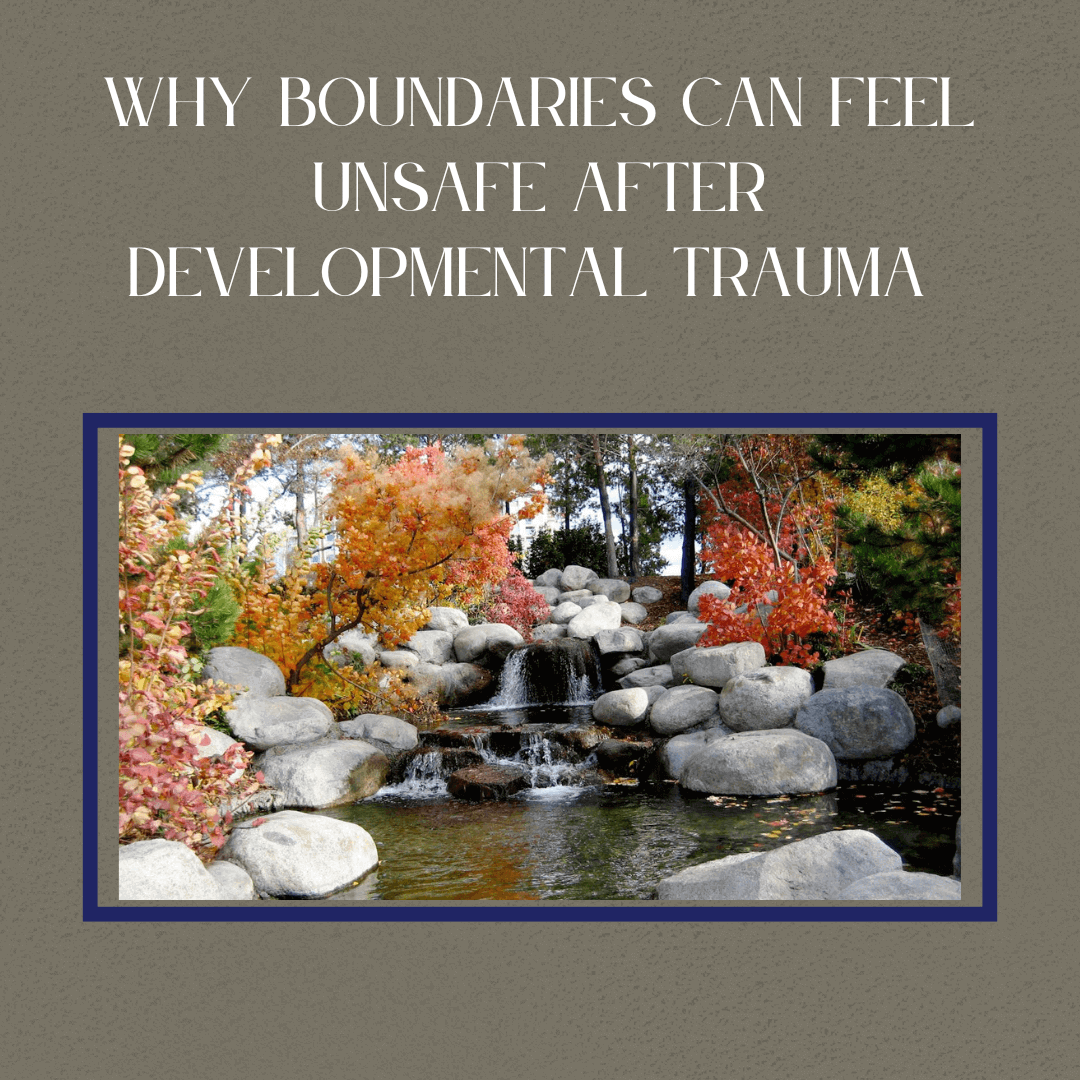Why Boundaries Can Feel Unsafe After Developmental Trauma: Insight from Trauma Therapist Atlanta
You’ve worked hard to understand what healthy boundaries even look like. You’ve read the books, practiced saying “no,” and maybe even made promises to yourself about not letting others take advantage of you again. But then, the moment you try to hold a line, you freeze, panic, or feel flooded with guilt.
As a trauma therapist in Atlanta, I often hear clients say, “I know boundaries are supposed to help me, but they feel wrong.” Sometimes boundaries can feel even mean. They are not, but if any of this feels true for you, you’re not broken. You’re reacting exactly how your nervous system learned to survive.
Why Boundaries Can Feel Unsafe After Developmental Trauma
Developmental trauma—especially trauma that happens in childhood—often forms in the context of relationships. You may have grown up in an environment where your needs were ignored, your feelings were dismissed, or love was conditional. In those moments, your brain and body learned one powerful lesson: connection equals survival.
If saying “no” threatened connection, your system learned to associate boundaries with danger. So now, as an adult, even small acts of self-protection can feel terrifying. Your body remembers that asserting yourself once led to disapproval, rejection, or punishment.
You might think, I set a boundary, and the other person’s response left me feeling mean for setting it. That moment of guilt or panic isn’t proof you did something wrong—it’s a sign that your nervous system still equates safety with compliance.
Boundaries, then, don’t just feel uncomfortable—they feel unsafe.
How the Nervous System Interprets Boundaries as Threats
When you try to set a boundary, your nervous system may react as if you’re under attack. You might feel:
Your heart racing or chest tightening
Nausea or a pit in your stomach
Guilt, shame, or panic about disappointing others
A powerful urge to give in, apologize, or overexplain
These sensations aren’t signs of weakness. They’re the body’s way of saying, “This feels like danger.” But the “danger” isn’t current—it’s historical. Your nervous system is responding to old memories of disconnection and fear.
This is where trauma therapy helps. In trauma therapy, clients learn that the body holds onto protective responses long after they stop being needed. With gentle body-based tools, I can help your system begin to tell the difference between past danger and present safety.
When Boundaries Once Meant Losing Love
For many survivors of developmental trauma, love and safety were intertwined with compliance. Maybe you had to stay quiet to avoid being yelled at. Or maybe you became the “helper,” the “peacemaker,” or the “responsible one” to earn approval. Over time, your identity became tied to making others comfortable.
So now, when you say “no,” it doesn’t just feel like setting a limit—it feels like risking love.
Your inner child fears abandonment, while your adult self knows you deserve protection. That tug-of-war inside you isn’t weakness. It’s the natural tension of healing.
Boundaries can awaken old grief for the love, care, and safety you never received. But honoring your limits is how you begin to give yourself what you needed all along: protection, respect, and a voice.
Reframing Boundaries as Acts of Safety
When we reframe boundaries not as walls but as acts of safety, something shifts.
Instead of thinking, “I’m shutting people out,” you can remind yourself, “I’m creating space for safety, honesty, and trust to grow.”
Boundaries are not punishment—they are invitations to connect in healthier ways. Part of trauma therapy is often spent working on helping clients regulate their body before, during, and after setting boundaries. Breathing deeply, grounding your body, or even placing a hand over your heart while saying, “It’s safe to protect myself,” can help retrain your nervous system.
Healing is not about never feeling afraid—it’s about learning that fear doesn’t mean you’re in danger anymore.
Healing the Fear of Boundaries Through Trauma Therapy
My clients learn to approach boundaries with compassion, not pressure. Instead of forcing yourself to be “strong,” we slow down, notice what feels unsafe, and use body-based tools to bring your system back to calm.
Here’s what that might look like in therapy:
Exploring the origin of fear. Understanding where your fear of boundaries began helps you respond with empathy instead of shame.
Body awareness. Learning to recognize early signs of stress or collapse gives you a chance to soothe your body before it overwhelms you.
Practicing safe expression. Through guided imagery, role-play, or mindfulness, you learn to say what you need while feeling supported and grounded.
Boundaries stop being terrifying when your body starts believing it’s safe to have them.
A Gentle Reminder
You deserve to feel safe in your relationships—and in your own body. Boundaries aren’t about pushing others away; they’re about protecting your peace, your time, and your energy. They are how you reclaim your voice and remind yourself: I matter, too.
Healing this fear takes time. It’s not a quick fix—it’s a practice of safety, repeated gently over and over, until your body begins to believe what your mind already knows: You are allowed to take up space. You are allowed to have needs. You are allowed to be safe.
If you’re ready to begin this work, I offer a free 15-minute consultation to help you take that first step toward balance, safety, and healing.
Kristy Brewer is a therapist Atlanta offering online therapy in Georgia helping people find peace amidst the chaos. Her specialties include trauma therapy, attachment therapy for trauma within toxic relationships, anxiety therapy, depression therapy, and parents raising a traumatized child.
Request a free 15-minute phone consultation today by clicking here.

